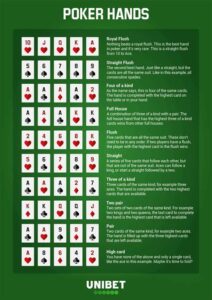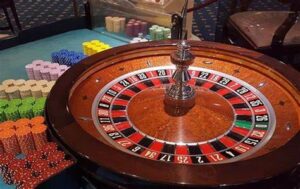
Dive Deep into What Sports Betting Odds Reveal, Especially How Home Advantage Sways Outcomes. Our Analysis Breaks down the Real Influence on Your Bets.
The Impact of Home Advantage on Betting Odds
- Unpacking the Concept: What Is Home Advantage?
- Examining Statistical Evidence: Do Home Teams Win More?
- How Bookies Use Home Advantage in Setting Odds
- The Psychological Edge of Playing at Home
- Impact of Spectator Presence on Home Advantage
- Strategies for Bettors Considering Home Advantage Dynamics
Unpacking the Concept: What Is Home Advantage?

Diving into the essence of home advantage, it’s like unwrapping a piece of sports magic concocted right in the heart of a team’s most familiar turf. Picture this: a bustling stadium or a cozy arena, each nook and cranny infused with the energy and spirit of countless battles and victories. Here, players aren’t just athletes; they’re gladiators fighting with the vigor and valor that only their home ground can invoke. This isn’t just about playing on familiar soil; it’s about the amalgamation of local crowd support, the routine of being in a known environment, and, of course, the absence of travel fatigue – all of which can contribute to what fans and sports analysts alike refer to as the ‘home cookin’ advantage.
| Factor | Impact on Home Advantage |
|---|---|
| Local Crowd Support | Boosts team morale and energy |
| Familiar Environment | Reduces stress and anxiety among players |
| No Travel Fatigue | Players are well-rested and prepared |
Statistically speaking, a closer look at the numbers often reveals a telling tale: teams tend to notch up more wins on their home turf compared to when they are away. This phenomenon is not merely a coincidence but a testament to the psychological edge that home advantage can provide. It’s about stepping onto the pitch, court, or diamond, knowing every blade of grass or patch of dirt like the back of your hand. Yet, it’s not just the players who feed off this energy; bookies and punters alike are keenly aware of this dynamic, often adjusting their odds and strategies to mirror the anticipated swing in performance that home advantage might bring about.
However, what truly makes home advantage a compelling concept to explore isn’t just the statistical edge or the strategical tweaks it incites in the betting realm. It’s the layers of psychological complexity, from the bolstered confidence of playing in front of a supportive crowd to the immeasurable boost of sleeping in one’s own bed the night before a game. Truly, the tales of home advantage intertwine with folklore, making each game not just a display of skill but a heartfelt story of returning heroes fighting where their legacy began. Whether it’s for the love of teh game or the thrill of the bet, the dynamics of home advantage undeniably craft a riveting chapter in the vast encyclopedia of sports.
Examining Statistical Evidence: Do Home Teams Win More?

In the realm of sports betting, the home advantage phenomenon is a widely acknowledged concept amongst punters and analysts alike. This pivotal factor is often reflected in the way bookies set their odds, teetering the scales in favor of home teams, a practice deeply rooted in statistical evidence. Analyzing sports betting odds: what they mean reveals that, historically, home teams have demonstrated a higher win rate compared to their visiting counterparts. This trend is underpinned by a variety of factors, including familiar playing conditions, lesser travel fatigue, and the vociferous support from local fans. Such is the influence of these factors that they compel bookmakers to meticulously adjust their odds, embedding the perceived home advantage directly into the betting lines.
The psychological edge of playing on familiar turf cannot be understated. Athletes playing at their home ground tend to exhibit higher levels of morale and motivation, translating into superior performances on the field. Spectators, too, play a crucial role, creating an intimidating atmosphere for visiting teams. Notably, the impact of home advantage varies across sports and leagues, with certain disciplines showing a more pronounced effect than others. The presence of spectators, for instance, has been linked to significant shifts in momentum, serving as the 12th man in football or the 6th player in basketball. Despite this, the advent of games behind closed doors has offered a unique opportunity to scrutinize the home advantage devoid of fan influence, leading to intriguing insights. For bettors and enthusiasts delving into the intricacies of analyzing sports betting odds: what they mean, these dynamics offer a fascinating layer of strategy, urging a closer evaluation of how home advantage factors into their wagering decisions. Meanwhile, the current analysis underscores the essence of accomodating home advantage into betting strategies, enriching the dialogue around achieving success in the ever-evolving domain of sports betting.
How Bookies Use Home Advantage in Setting Odds

In the intricate world of sports betting, the science of analyzing sports betting odds: what they mean involves a blend of statistical analysis and understanding human psychology, with bookies giving particular attention to the phenomenon of home advantage. This invisible, yet palpable edge can often tilt the scales in favor of the home squad, a factor cleverly exploited by bookmakers when setting their odds. By meticulously tracking historical data, bookies factor in the win-loss ratios of teams playing on their home turf versus away, with this comp of data revealing patterns that are crucial for accurate odds-setting.
Home advantage isn’t just about familiar facilities or the absence of travel fatigue; it encapsulates the roaring support of the home crowd, which can significantly uplift a team’s performance or rattle the visiting opponents. This psychological boost is incorporated into the odds, often subtly, but it can make all the difference. For example, a team might be seen as a marginal underdog in a neutral venue but could become the favoured side when playing in their own den, thanks to the spirited cheers coming from the stands.
Furthermore, bookmakers also consider the absence or presence of key players, which could be more pronounced in home games. The impact of these variables requires constant recalibration of odds, making the bookie’s role both challenging and dynamic. Occasionally, bookies might face a “Pharmageddon” scenario, especially during high-stakes matches where the influence of home advantage on odds can trigger a frenzy of last-minute bets, forcing rapid adjustments to maintain the house edge.
In essence, the calculus behind setting odds is a fine art, honed over years of experiance and continually refined through technology and human insight. Bettors looking to capitalize on this dynamic must delve beyond surface-level statistics and understand the nuanced ways in which home advantage influences bookmaking. 🏠➕🎲 As such, developing a strategy that accounts for these subtleties could be the key to unlocking betting success, turning the odds in the savvy bettor’s favor.
The Psychological Edge of Playing at Home
Analyzing sports betting odds: what they mean often overlooks the tangible impact of competing on familiar turf. There’s something inherently comforting about playing in familiar settings, amidst supportive cheers, that provides a psychological boost to athletes. This sense of comfort, security, and support translates into a noteworthy advantage for the home team—akin to having an extra player on the field. It’s not just the loud cheers or the absence of travel fatigue; it’s the profound sense of belonging and the subtle yet significant advantage of knowing every inch of the playing surface, from how the ball bounces to how the wind affects play. Such nuances, though seemingly minuscule, can cumulate to tip the balance in favor of the home side, influencing how punters analyze and leverage sports betting odds.
Venturing into the realms of psychology, the phenomenon also extends to a phenomena known as the “pharm party” effect, where the collective energy of the crowd acts as a catalyst, elevating player performance beyond their standard capabilities. Just as a mix of different elements can create a powerful cocktail 🍹, the diverse factors contributing to home advantage blend to create a potent force. Spectators do more than just observe; they participate in creating a hostile environment for the opposition, a factor not easily quantifiable but immensely impactful. Punters dissecting sports betting odds must account for this intangible yet palpable force. Despite the intricate strategies and definate 📈 planning, it’s this psychological edge—this electric atmosphere—that often sways the outcome of games, illustrating the complex art of analyzing sports betting odds in a new light.
Impact of Spectator Presence on Home Advantage

The roar of the crowd, the feeling of unity, and the eruption of joy when a goal is scored can’t be replicated. This electric atmosphere is a crucial ingredient in the recipe for home advantage. Players often describe the boost they receive from their fans as palpable; it’s as if the crowd’s energy is directly transfused into their veins, giving them that extra push when fatigue sets in. Spectator presence transforms the home stadium into a fortress, where every cheer and chant can rattle the opposing team, sometimes leading to mistakes they wouldn’t normally make. It’s this psychological warfare, backed by thousands, that turns the tide in favor of the home side.
Analyzing sports betting odds: what they mean in this context becomes fascinating. Bookies aren’t just crunching numbers in a back office; they’re considering human emotions, the psychology of crowds, and the historic performance of teams in their own havens. When a team known for its strong home record plays, odds shift to reflect the anticipated influence of the crowd. It’s a game of anticipation and strategy, where understanding the nuances of home advantage can lead to more informed decisions.
However, the pandemic brought an unexpected twist, turning once-packed venues into echoing halls. This sudden silence provided an unprecedented experiment to measure the true impact of fans. Studies suggested that home teams continued to have an advantage, albeit reduced. This could indicate that while fans are a significant factor, they aren’t the sole contributors to the home advantage phenomenon.
| Aspect | Pre-Pandemic | During Pandemic | Post-Pandemic Forecast |
|---|---|---|---|
| Fan Presence | High | None/Minuscule | Returning to High |
| Home Advantage Effect | Significant | Reduced | Expected to Increase |
| Betting Odds Adjustment | Considerable | Minimal | Increasing Adjustment |
| Psychological Impact on Players | High | Lowered | Rejuvenating |
For bettors, adapting strategies to this evolving environment is key. Keeping a keen eye on trends, such as the gradual return of fans to stadiums and its resultant effect on teams, could be crucial. The dynamic between a team and its supporters is complex, but undeniably powerful, making the spectator presence a vital component, or in pharmacy terms, the ‘elixir’ to a team’s performance. Observing these shifts and analyzing their impact on sports betting odds brings an extra layer of excitement to the game, inviting fans and bettors alike to engage with sports in a more profound and tactile manner.
Strategies for Bettors Considering Home Advantage Dynamics
When navigating the dynamic terrain of home advantage in sports betting, it’s prudent to keep a weather eye on a few strategic signposts. First and foremost, understanding ‘the lay of the land’ involves recognizing that home advantage isn’t a static force; its strength ebbs and flows with factors such as spectator presence, team morale, and recent performance. Wise bettors analyze these variables, poring over historical data and current stats with the meticulousness of a Pharm Tech scrutinizing prescriptions on Fill Day. This approach enables the crafting of more informed wagers, factoring in the nuance of each game’s context, rather than blindly following the herd.
Moreover, considering external influences can offer bettors an edge. For instance, the introduction of VAR (Video Assistant Referee) in football has seen the erosion of certain home biases, suggesting that technology’s role in sports can’t be underestimated. In addition to technological factors, travel restrictions or extensive travel times can also dilute the home advantage, making it less of a ‘safe bet’. Bettors need to be as adaptable as a Floater pharmacist, ready to recalibrate their strategies based on the latest developments.
Lastly, bettors shouldn’t shy away from seeking out anomalies — games where the predicted home advantage may not align with the betting odds. Such discrepancies can be a treasure trove, akin to finding a ‘Golden Handcuffs’ prescription that defies the usual patterns. It requires delving deep into the nuances of each matchup, understanding not just the players on the field but the wider enviroment that influences outcomes. With a strategic approach, seasoned with a dash of curiosity and a willingness to challenge conventional wisdom, bettors can turn the tables on home advantage, leveraging it to their benefit rather than being led astray by oversimplified assumptions.



